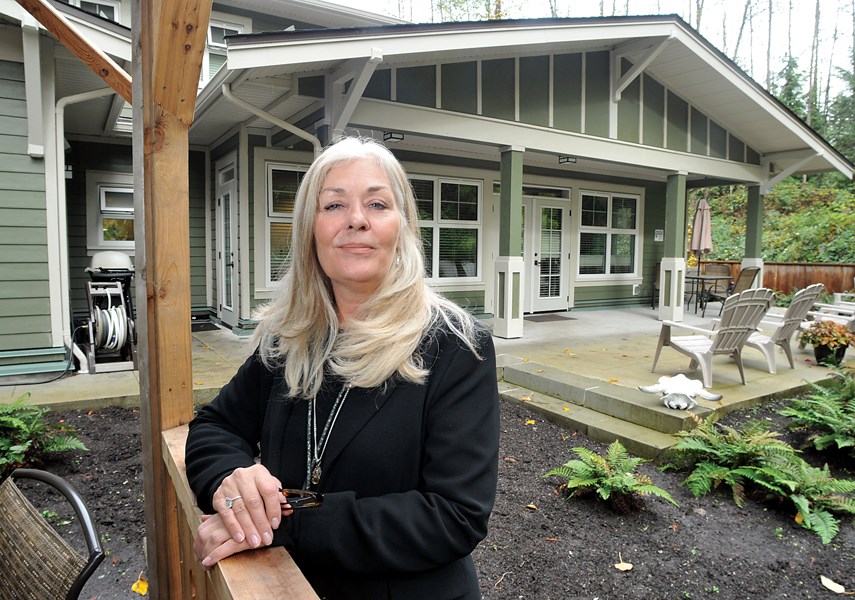After several years in development, a Turning Point facility has opened its doors in North Vancouver in order to support men in the community who are ready to turn a corner.
The 10-bed residential support facility, which offers addiction recovery services for drug and alcohol use, officially opened its doors last month on Burr Place, close to the nearby Berkley Care Centre (formerly known as the Kiwanis Care Centre).
The grand opening, held Sept. 28, was attended by dignitaries such as outgoing District of North Vancouver Mayor Richard Walton and local MLAs Jane Thornthwaite and Bowinn Ma.
Brenda Plant, executive director at Turning Point Recovery Society, noted that the residential program offered at the North Shore men’s facility generally runs between three and five months for most visitors.
“It’s for people who voluntarily want to come to get clean and sober and transition back to society and community after they’ve graduated,” said Plant, adding that most clients range in age between 35 and 45. “It’s not an intensive clinical program, and we also don’t accept people that are court mandated, we only take people who have recognized they have a problem and want help.”
The non-profit Turning Point Recovery Society currently offers recovery services for men and women at its facilities in Vancouver, Richmond and the North Shore. Turning Point opened a 10-bed North Shore recovery facility for women approximately four years ago in North Vancouver, added Plant.
“Priority is absolutely given to North Shore residents. It’s one of the reasons that we built both the women’s house and the men’s house with a lot of support from council over the years – was because there was nothing residentially for people on the North Shore. Now there is. We fill that gap, which is terrific,” she said.
While Turning Point operates the two residential addictions recovery facilities on the North Shore, the organization also runs outreach programs and a drop-in centre elsewhere in Metro Vancouver, and helps fund subsidized housing for people in recovery through a recently opened social enterprise café based out of Richmond.
It’s endeavours like this, explained Plant, that allow Turning Point to offer a continuum of care, meaning patients can access resources and supports, such as outreach workers or housing, even after they’ve completed their time in direct recovery.
“You have a better chance of reducing recidivism if you have this longer term continuum,” she said, adding that ideally there would be more supportive housing in North Vancouver that would provide people in recovery with “somewhere to go when they graduate from our program, to extend their recovery experience and participate in our after-care program.”
The North Shore men’s facility was first proposed back in 2015, much to the ire of many local residents who at the time feared that putting the recovery house in the originally proposed residential area on Windridge Drive was too much of a risk.
“There was a lot of resistance when the project was originally proposed,” said Plant. “There was significant community opposition and council made the decision that we’d be better able to meet our mandate if we were in a different location.”
The men’s facility project was eventually passed by council after relocating the development to Burr Place.
In the three years since the facility was first proposed, Metro Vancouver has experienced an unprecedented opioid crisis but Plant noted that alcohol use was still the No. 1 substance that Turning Point clients were coming in for in search of treatment options.
“We’re also finding a lot more people presenting with complex mental health challenges, so we’ve had to change our program a little bit so we can address those needs,” she said. “What’s at the core of our program is that all clients have to develop an individual service plan, which is like a treatment plan that maps out the work they’re going to be doing when they’re in care with us.”
More work still needed to be done in communities across Metro Vancouver to support men and women with addictions, added Plant.
“I don’t think we have nearly enough beds anywhere.”



